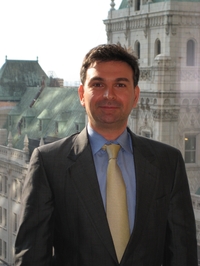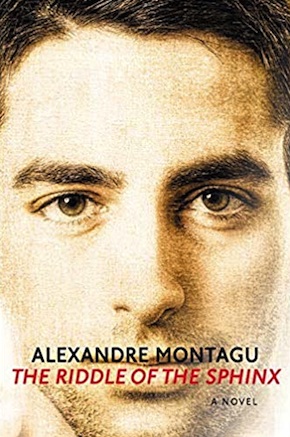In the midst of life, we are
by Mika Provata-CarloneThink of the word Iran. Think of a place, a landscape, a face, a history, a culture and perhaps a taste. What comes first into the contemporary mind is perhaps the tragic story of a mother torn away from her husband and daughter; subjected to imprisonment and negotiations, as though she were a criminal or faulty merchandise sent back for refund or exchange. A few years back, your mind would have perhaps conjured up images of The Kite Runner, if only because the film’s dustiness, ruggedness, lawlessness and desperate humanity is what ghostly, precious little we know about Iran itself and its region, at least on the level of a collective consciousness and conscience.
You might correct yourself: not Iran but Persia is the word you were looking for. Medes and the glorious Achaemenids (that ancient line of terrible and formidable kings); the Parthians who were the nemesis of the Romans, much like the forests of Germany would be a few years later. You might even, at a stretch, think of the Qajars and their Rose Empire, their dissolution that was also an artistic miracle, an overture towards a different world harking back to ancient times with a view of a place in present time. Ingres’ Grande Odalisque (and his many ‘lesser’ ones) and Lady Mary Wortley Montagu’s Letters from Turkey might slip through as well and make you grin; the Orientalist visions of Delacroix, Gérôme, Edward Lear or William Holman Hunt may fill you with aplomb, reverie or leave you just plainly aghast. Gertrude Bell, Freya Stark or Mary Kingsley, on the other hand, may shake you up a little, reminding you that the eye of the beholder is not always as innocent, as pure, as perfect as it seems.
If the twentieth century stumbles across your mind’s journey, it might evoke both vermeil and bullion grandeur and very bloody cruelty. After the Qajars came the Pahlavis, equally larger than life, uncontainable by history, miraculous and monstrous all at once. The fall of the Shah of Iran in 1978 was a Caesarean section for the region, giving birth to abominable horrors. Necessary for some, revolting to many, it marked more than a people, certainly more than a generation.
Iran is today a ghost roaming the alleyways of its past, too faint and too frightening to walk the paths of its future. At least this is the sense one has reading Alexandre Montagu’s debut novel The Riddle of the Sphinx. Terse as well as languid and indulgent, it traces the story of a young Iranian boy from an almost Edenic childhood in Tehran, through the full blast of 1980s American culture and subculture (with a rather idiosyncratic vision of Montagu’s alma mater, Princeton), to a more pensive, consolatory twenty-first century yearning for maturity, tranquillity and balance. The boy, Keyvan, is born into the new royalty of the time. There are links to the Qajars and to the Pahlavis, to money and history, to trauma and despair. It is a daring, acutely unfamiliar insight into Iran’s last hundred or so years, the rulers and the people, the images, landscapes, external vestiges and intimate interiors of a nation, even the feeling of the Iranian heat on one’s unsuspecting skin.
It is an intensely personal narrative, in many ways autobiographical, in others a shrewd, if explosive introspection into the fortunes and misfortunes of a nation and of individual lives.”
It cannot have been an easy book to write. The sense of nostos but also of ire, of wrath and of quashing vulnerability and ultimate powerlessness is almost overwhelming. Yet the option of not writing, of not seeking the words to speak, no matter how perilous the journey of memory, how treacherous the engagement with language, with memory and the imagination, cannot have existed either. It is an intensely personal narrative, in many ways autobiographical, in others a shrewd, if explosive introspection into the fortunes and misfortunes of a nation and of individual lives. For anyone familiar with the territory, who can decipher the real histories underpinning the names, the genealogies and geopolitics, this is an almost dangerous, dastardly, audacious document that straddles the boundaries between chronicle and fiction.
Montagu predicates his story with the riddle that the Theban Sphinx used to set to travellers desperate enough to cross her path: “What walks on four legs in the morning, two legs at noon and three legs in the evening?” Many perished before Oedipus stunned the Sphinx with his indomitable answer: Man! Lateral thinking, pure reason, human hubris all in one, the answer damns and deifies him. Oedipus’ brilliance is his blindness, and Montagu will give us many variations on that theme in the course of what is a complex and ambitious narrative. The source of our suffering, he ultimately argues, is our blindness to a common humanity, our delusion of ‘otherness’ when it comes to understanding the rich variations of our sameness.
Montagu draws on Edward Said’s notion of the West’s essentialisation of the Orient – the manufacturing of types, of archetypal Others. For Said, this inevitably condemns non-Western cultures to a state of impossible being, a state Montagu identifies as being that of those who had to flee Iran. Remaining ‘oriental’ in exile would signify exclusion and ostracism; to become ‘fully Westernised’ would be to renounce all and everything, being itself. It would mean living an eternal, fully Derridean différance. Montagu’s conceit is to transcribe the sense of fragmentation, alienation, depersonalisation and dislocation of his generation of countrymen through a seemingly surreal parcelling of Keyvan’s life, whom we see existing and developing in watertight tanks of time and experience. This device of non-communicating vases is both demanding and intriguing, allowing Montagu to observe, empathise, and vivisect some of the most vivid and crucial paradigms of the Iranian émigré diaspora.
Like the Russians before them, the Iranian émigrés come in many variations, shapes and sizes, with as many stories and questions about identity, place and belonging, the past, the present and the future, and as much richness, which, as Montagu shows, remains largely undiscovered by the West they chose (or were forced to accept) as their new homeland. It is indicative that in the past twenty years there have been only two exhibitions, worldwide, focusing on Iranian art of the last two centuries – one in 1998 at the Brooklyn Museum in New York, the second in 2018 at the Louvre, under the auspices of Christian Lacroix.
The Riddle of the Sphinx is both a sombre and sober assessment of Islamic history and influence in the region, as it is a j’accuse against the West’s own stratagems, prevarications, master narratives.”
As well as the troubled past and cultural and historical richness, people of the Iranian diaspora share with their Russian forerunners the same sense of post-traumatic angst and dysphoria, of depression and identity crisis, of futility in the midst of an almost mechanical procession of the vital gestures of being. More than malaise, this is a sense of erasure, an inescapable death wish, even as one longs almost perversely for life. Sliding doors keep emotions and states of consciousness separate, effectively caging demons and stifling angels. Keyvan/Eric is a prime example of that state of non-being, of constant ec-stasis, a dislocation which enhances in a stark manner his quest for very intense, exclusively physical and aesthetic experiences. Also his slanted perspective and frame of interpretation, his blindness to his own insights and terrible or wondrous visions.
The Riddle of the Sphinx is both a sombre and sober assessment of Islamic history and influence in the region, as it is a j’accuse against the West’s own stratagems, prevarications, master narratives. It is a memoir of loss and of discovery, a transcript of troubled rites of passage. It is an exploration of sexual identity and relationships in a heavily demarcated ’80s frame of reference, and with an intentionality that is as naively risqué as it is Freudian in its underwritten complexities. Death in Venice tones of physical and emotional domination and despair interchange with the challenge of stark explicitness and the iconography of Studio 54 and Roy Lichtenstein. If Proust’s madeleines here take a decidedly different form, Eric’s parallel life to Flaubert’s Madame Bovary is rather ingeniously staged. It will raise fruitful and not always comfortable questions about the homosexual psyche, experience, sense of being and direction.
“In the midst of life, we are” might be a good way to summarise what is at times a startling spectrum of a novel. The end is a realisation akin to the revelation that releases Oedipus from mortal tragedy at Colonus: a vision of a humanity that breaks down walls and constructs even precariously a place of being. Ambitious, urgent, complex, this is a confident and engaging authorial beginning.
 Alexandre Montagu is a lawyer living in New York. Fluent in English, French, Farsi and German, he studied at the University of Cambridge, Harvard Law School, and Princeton University, where he teaches a course in the comparative literature department as an adjunct professor. The Riddle of the Sphinx is published in paperback and eBook by Persepolis Press.
Alexandre Montagu is a lawyer living in New York. Fluent in English, French, Farsi and German, he studied at the University of Cambridge, Harvard Law School, and Princeton University, where he teaches a course in the comparative literature department as an adjunct professor. The Riddle of the Sphinx is published in paperback and eBook by Persepolis Press.
Read more
Mika Provata-Carlone is an independent scholar, translator, editor and illustrator, and a contributing editor to Bookanista. She has a doctorate from Princeton University and lives and works in London.


